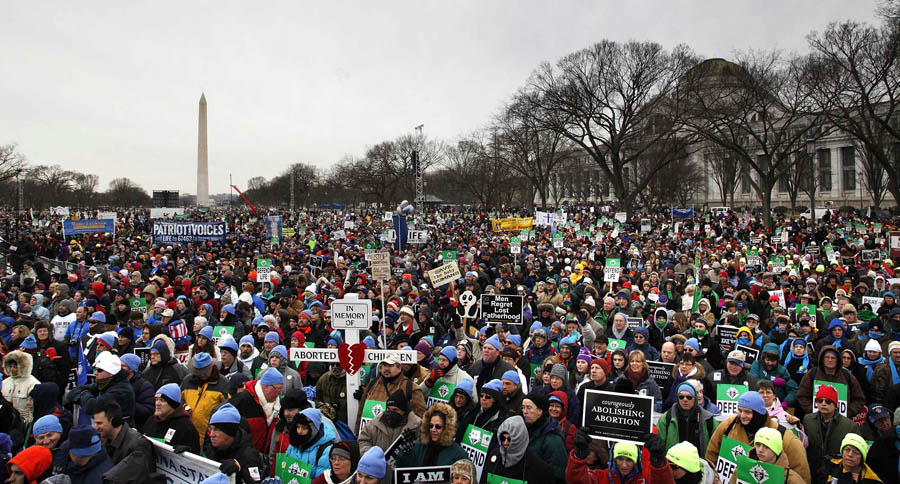Will defunding Planned Parenthood really solve America’s abortion problem?
That’s the essential question asked by Joseph Perkins, staff columnist for the Orange County Register in his piece entitled, “Remaining ‘pro-life’ after babies are born,” published online July 24.
Pointing out that he is “troubled by the hue and cry against Planned Parenthood by the GOP,” Perkins paints what he sees as the disconnect between pro-life politicians’ concern for unborn babies and their, “greatly diminish[ed]” concern for born babies.
With the problem in focus, Perkins proposes what he sees as the new way forward, an uncharted new land of sorts that he suggests could “be to adoptions what Planned Parenthood is to abortion.”
While Perkins’ premise merits some deliberation (see below), his plan for what he calls, “a viable, even appealing, alternative to abortion” is right on the money.
Tweet This: @JosPerkins is right on the money. #Prolife help is the answer. #PPSellsBabyParts
The only issue is, Perkins is about 45 years and 2,500 U.S. locations behind the curve.
As Perkins’ apparent unfamiliarity underscores, pregnancy help centers, medical clinics, non-profit adoption agencies and maternity homes comprise the best-kept secret in the pro-life movement.
[Click here to subscribe to Pregnancy Help News!]
Perkins suggests that such an “abortion start-up could raise capital from such pro-life philanthropists as Ray Ruddy, former chairman and president of Maximus Consulting Group, Tom Monaghan, founder of Domino’s Pizza, and Farris Wilks, co-founder of Frac Tech.”
Amazingly, all three of these names are already major players in providing women with alternatives to abortion: The Wilks family is involved in both local and national life-affirming endeavors, Ruddy has been named in a NARAL-Pro Choice America attack on pregnancy centers as “a major funder,” and Monaghan keynoted a conference in 2013 for Heartbeat International, the world’s largest, most expansive network of pregnancy help.
Again, the fact that the pregnancy help community is the pro-life movement’s best-kept secret seems to be highlighted, bolded, and capitalized by Perkins’ column.
Not only that, but when pregnancy help organizations make the news, it’s usually because the good work they are doing is under attack—including in California, where Assembly Bill 775 awaits State Senate and gubernatorial approval to begin compelling these life-affirming alternatives to abortion to direct their clients to the nearest abortion facility.
Unfortunately, the Orange County Register has failed to make even the slightest mention of this coercive bill, which would threaten the very existence of the organizations Perkins has in mind. (Perhaps a fitting follow-up column for Perkins to pursue.)
These are centers that offer true choice, true empowerment to a woman facing an unexpected pregnancy. Pregnancy help organizations offer information on all options—parenting, parenting through placing for adoption, and abortion—as well as vital information including the risks associated with abortion and scientific research on fetal development.
These organizations do so because they believe that no woman should ever feel so alone, coerced, or hopeless that she ends her child’s life through abortion.
But far from meeting a mother at the moment of crisis and moving onto the next case, pregnancy help organizations are there for women beyond pregnancy, preparing and supporting mothers with parenting classes, job skills training, material assistance, healing after abortion, and so much more.
Consider the story of a Charleston, S.C., mother, dealing not only with the loss of a family member and friend in the June 17 shooting, but also with the loss of her eldest daughter—and an unexpected pregnancy to boot.
[Click here to subscribe to Pregnancy Help News!]
As the article at Pregnancy Help News illustrates, her local pregnancy help organization didn’t just give her some advice and a handout to help her along with her latest arrival—they have become family to her. They stood beside her. They became her ally in the community.
Which points us back to the curious dichotomy introduced in the very title of Perkins’ article: “Remaining ‘pro-life’ after babies are born.”
Tweet This: @JosPerkins introduces interesting dichotomy between born, #unborn
At one point in his piece, Perkins says the following:
“Because it all too often seems that the concern pro-life political figures have for babies while they are in their mothers’ wombs greatly diminishes once those babies are born.”
At the risk of defending anyone in the political arena, what does that statement really mean? Why does it have to be one or the other? Can care for a born-baby even exist if the baby never makes it out of the womb?
Why would we grant—even for a moment, even for the sake of argument—the faulty presupposition that it’s possible to truly care for unborn babies but not for born babies?
True, the pro-choice camp is firmly committed to the deadly disconnect that it's just a matter of time and location that dictates the difference between what is valuable because of humanity and what is valuable only for what it will fetch on the baby body parts market.
But this is a devilish notion, this “right-time, right-place” ideology that reduces human value to the sum of our parts. This isn’t a choice we need to make—between “either” valuing or an already-born person or a not-yet-born person.
In fact, this is the whole crux of the pro-life understanding—that there is no determinative difference between a baby who is unborn and one who is born. We must be careful to reject the dichotomy altogether, because we don’t subscribe to the larger ideology.
[Click here to subscribe to Pregnancy Help News!]
There’s no better proof that pro-lifer’s care for both born and unborn (not to mention both mother and child) than in the reality of pregnancy help so strongly championed by Perkins.
It’s time to spread the word about the pro-life movement’s best-kept secret.
Tweet This: It's time to spread the word about best-kept #prolife secret. @HeartbeatIntl @inspirelifenow






